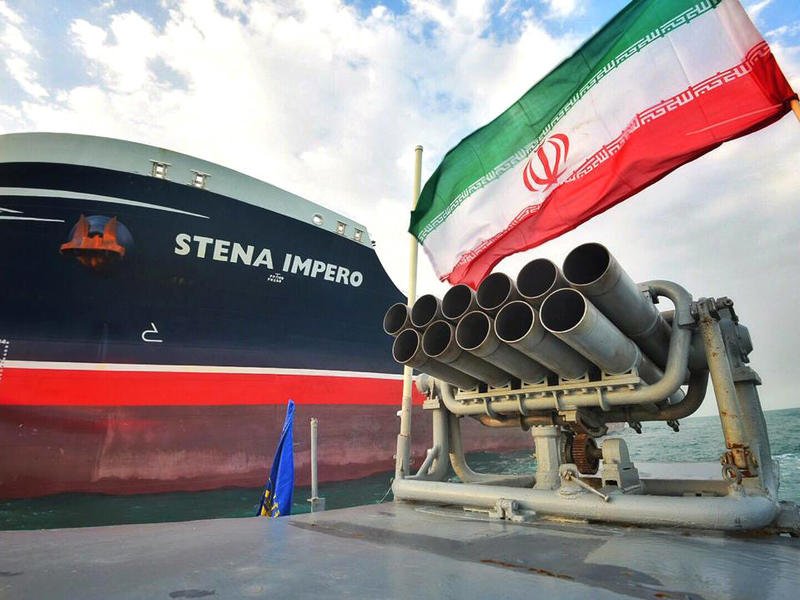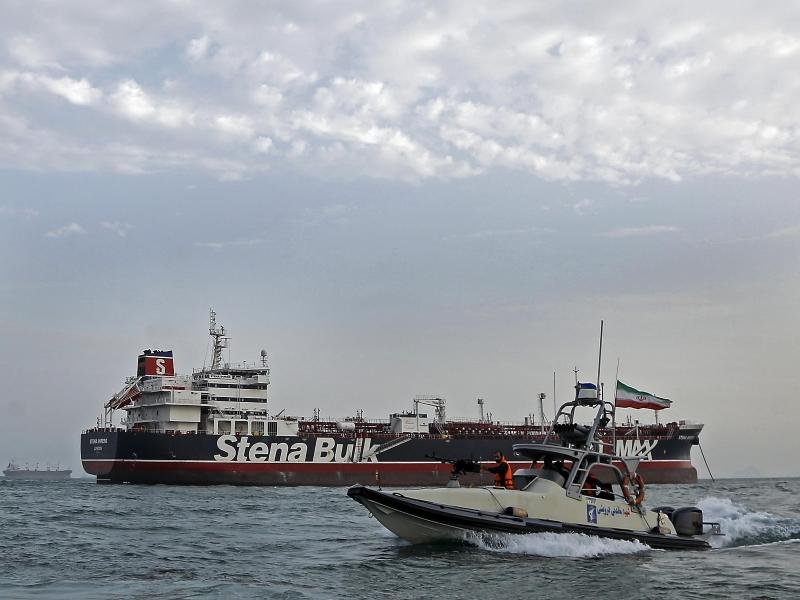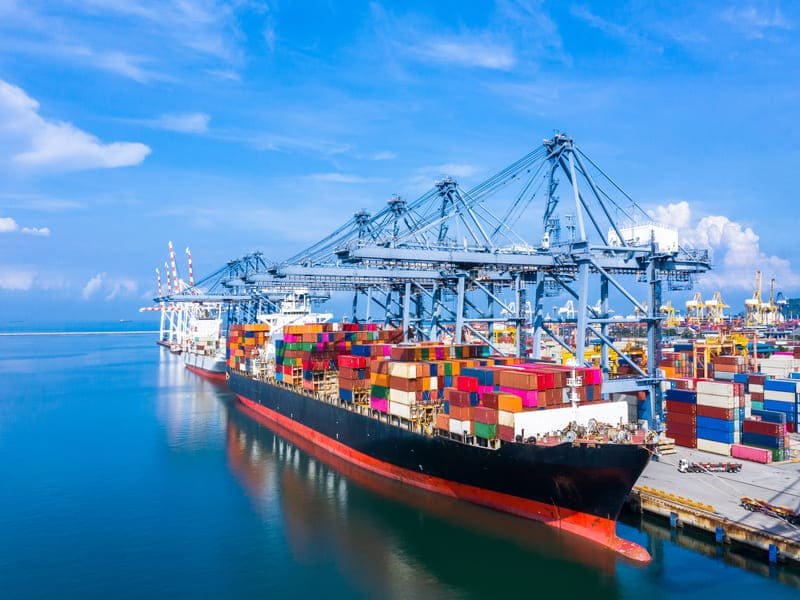
International trade between Iran and the United Kingdom, despite being influenced by geopolitical and economic factors, continues to support a wide range of industries. From consumer goods and food products to industrial machinery and specialized materials, this trade corridor remains active and commercially relevant.
For businesses and individuals planning to ship from Iran to the UK, understanding shipping routes, regulatory requirements, transit timelines, and logistics planning is essential to ensure a smooth, cost-effective, and legally compliant process.
Whether you are exporting Persian rugs, dried fruits, saffron, pistachios, petrochemical products, or industrial components, this guide provides a clear and practical overview of what does the UK import from Iran and how these shipments are typically handled.
Why Ship from Iran to the UK?
Unique Iranian Products
Iran exports a variety of high-demand goods, including carpets, pistachios, saffron, handicrafts, dried fruits, and mineral products. These items are well received in European markets, including the UK, due to their quality, authenticity, and cultural value.
Industrial and Petrochemical Exports
Iran’s energy and petrochemical sector supplies raw materials and byproducts used in manufacturing, construction, and processing industries across the UK.
Diaspora and Personal Shipments
With a sizable Iranian community living in the UK, there is consistent demand for shipping personal belongings, cultural goods, and gifts from Iran to family members and business partners.

Modes of Shipping from Iran to the UK
Several shipping methods are available, each offering different advantages depending on cargo type, urgency, and budget.
Air Freight
Transit time: Approximately 3–7 days
Best for: High-value, low-volume, or time-sensitive goods
Air Freight shipments typically depart from Imam Khomeini International Airport (IKA) and arrive at major UK airports such as Heathrow (LHR), Manchester (MAN), or Birmingham (BHX).
Sea Freight and Container Shipping
Transit time: Approximately 25–40 days
Best for: Bulk cargo, heavy shipments, and containerized goods
Both sea freight and Ocean Freight solutions are commonly used for commercial shipments departing from major Iranian ports such as Bandar Abbas and Imam Khomeini Port, with arrivals at UK ports including Felixstowe, Southampton, and London Gateway.
Multimodal and Groupage Solutions
In many cases, shipments transit through neighboring countries such as Turkey or the UAE before continuing to the UK. This approach is particularly effective for Groupage Freight , where smaller consignments are consolidated to reduce overall costs while maintaining compliance.
Key Shipping Routes from Iran to the UK
Cargo from Iran typically follows well-established trade lanes:
- Southern Iran to UK ports via the Persian Gulf and European transshipment hubs
- Overland routes to Turkey or the UAE, followed by onward maritime or air transport
Selecting the optimal route depends on cargo sensitivity, documentation requirements, and cost considerations.

Required Shipping Documentation
Shipping from Iran to the UK requires accurate and complete documentation to avoid delays or penalties. Commonly required documents include:
- Commercial Invoice
- Packing List
- Certificate of Origin
- Bill of Lading (for maritime shipments) or Air Waybill
- Export or Import Licenses (if applicable)
- Insurance Certificate
- HS Code classification
Proper documentation is critical for customs clearance on both sides.
UK Customs Clearance and Compliance
Export Regulations in Iran
All exports must be registered with Iranian Customs. Certain goods may require prior inspection or approval from relevant authorities, depending on their nature.
Import Regulations in the UK
Following Brexit, the UK operates under updated customs procedures. Imports from Iran must be checked for sanctions compliance, tariff requirements, and product-specific restrictions. Items such as food products, cosmetics, or electronics may require special permits or pre-notification.
Working with an experienced freight forwarder significantly reduces compliance risks and delays.
Estimated Shipping Costs and Pricing Factors
Shipping costs from Iran to the UK vary based on:
- Transport method selected
- Cargo weight and volume
- Type and value of goods
- Container type (FCL or consolidated shipments)
- Port handling and customs fees
- Packaging and insurance requirements
Air shipments are typically priced per kilogram, while maritime shipments are calculated per container or cubic meter. Careful planning can significantly reduce total logistics expenses.
Common Shipping Challenges
Despite being a viable trade route, shipping between Iran and the UK presents unique challenges:
- Sanctions and regulatory compliance
- International banking limitations affecting payments
- Dependence on third-country transit routes
Professional logistics coordination is essential to overcome these obstacles efficiently.
Choosing the Right Freight Forwarder
Selecting a knowledgeable logistics partner is critical for successful shipping operations. Lianvisman specializes in international logistics and provides tailored solutions for shipments between Iran and Europe.
With expertise in multimodal transport, compliance management, and customs coordination, Lianvisman ensures reliable Freight to Iran and outbound shipments to the UK with transparency and efficiency.
Conclusion
Shipping from Iran to the UK continues to support international trade, cultural exchange, and business development. With accurate documentation, regulatory awareness, and professional logistics support, this route can be managed confidently and effectively.
FAQs
1-Can individuals ship personal items from Iran to the UK?
Yes. Personal belongings, gifts, and cultural items can be shipped, provided that contents are accurately declared and comply with UK customs regulations.
2-What goods are restricted or prohibited when shipping from Iran to the UK?
Restricted items may include military equipment, certain chemicals, precious metals, and sanctioned technology. Always verify product eligibility before shipping.
3-How long does shipping from Iran to the UK usually take?
Air shipments typically take under a week, while maritime shipments average between 25 and 40 days, depending on routing and port congestion
4-How can shipping costs be reduced?
Costs can be minimized by consolidating cargo, selecting maritime transport for non-urgent goods, and ensuring accurate documentation to avoid penalties.
5-Do shipments from Iran require special customs clearance in the UK?
Yes. All shipments are subject to UK customs procedures, and some goods may require additional permits or inspections depending on their classification.


